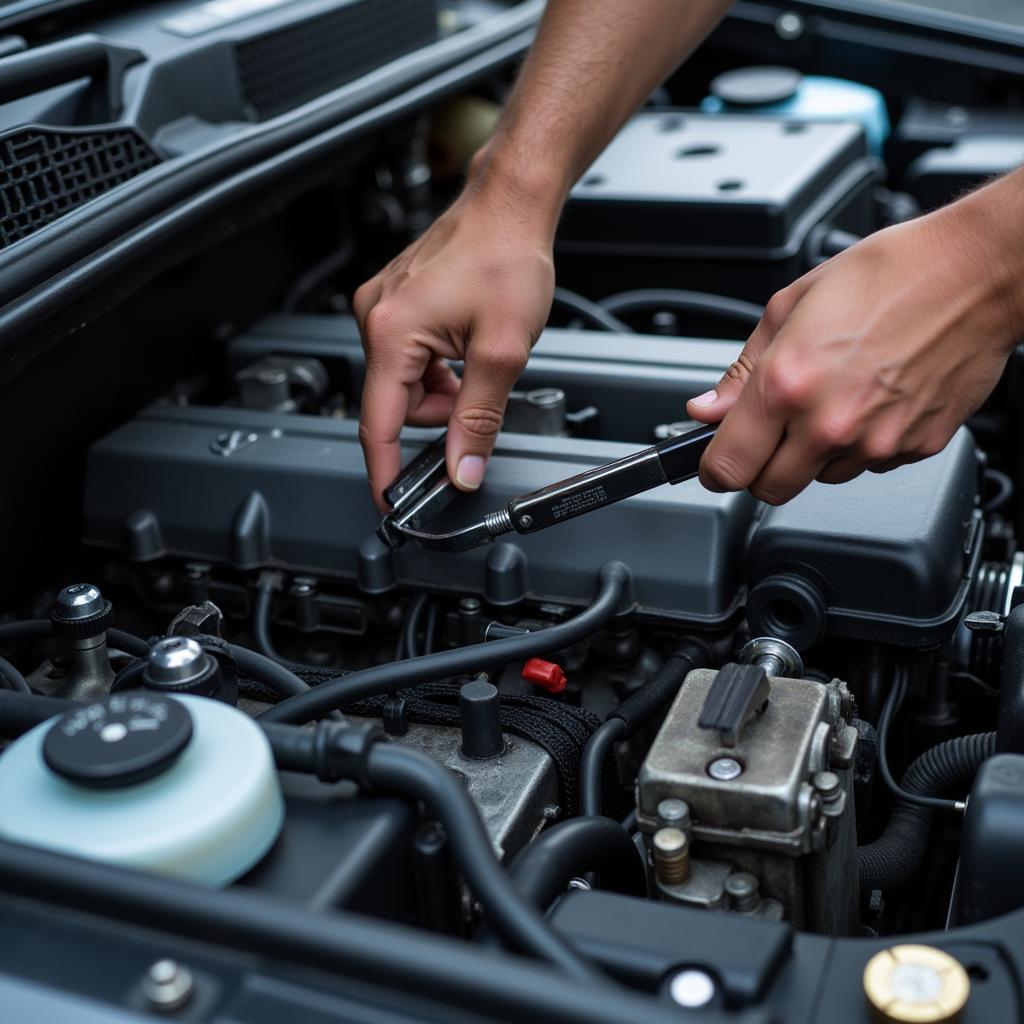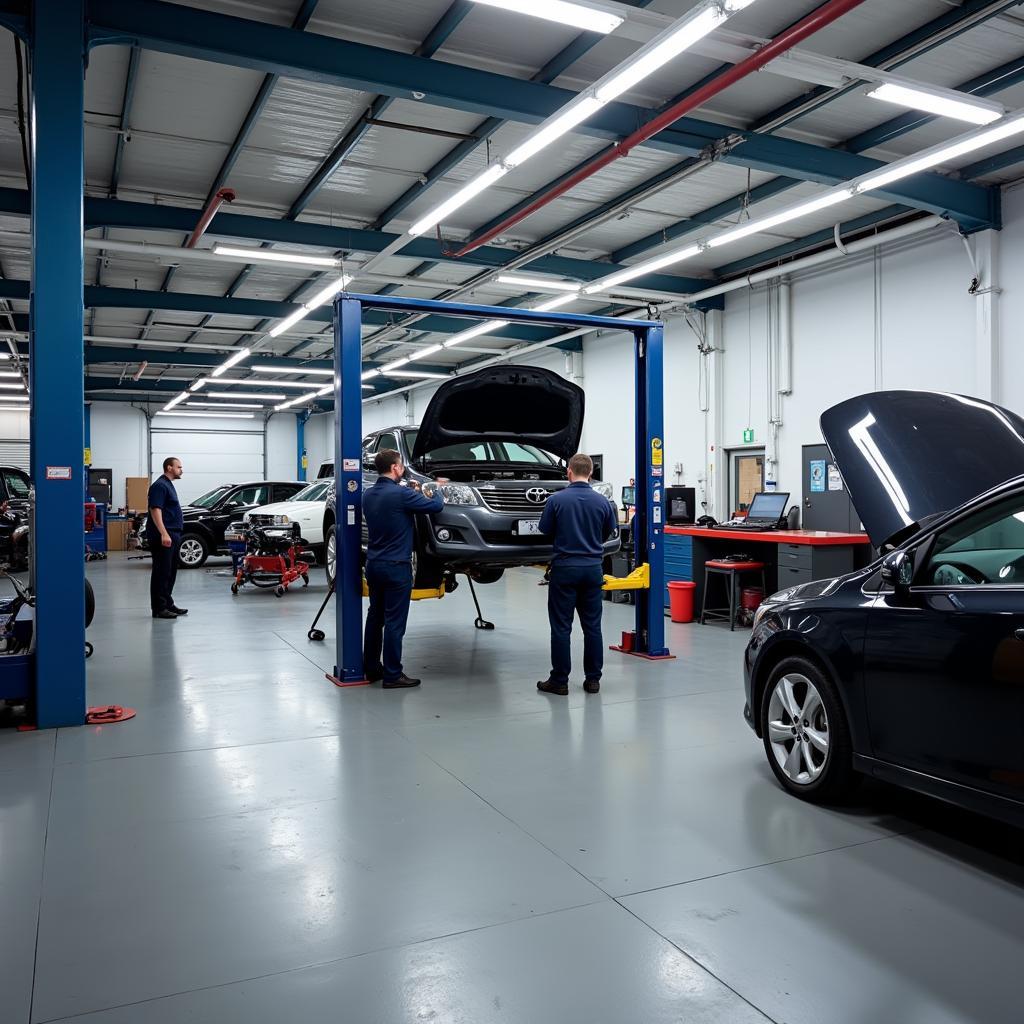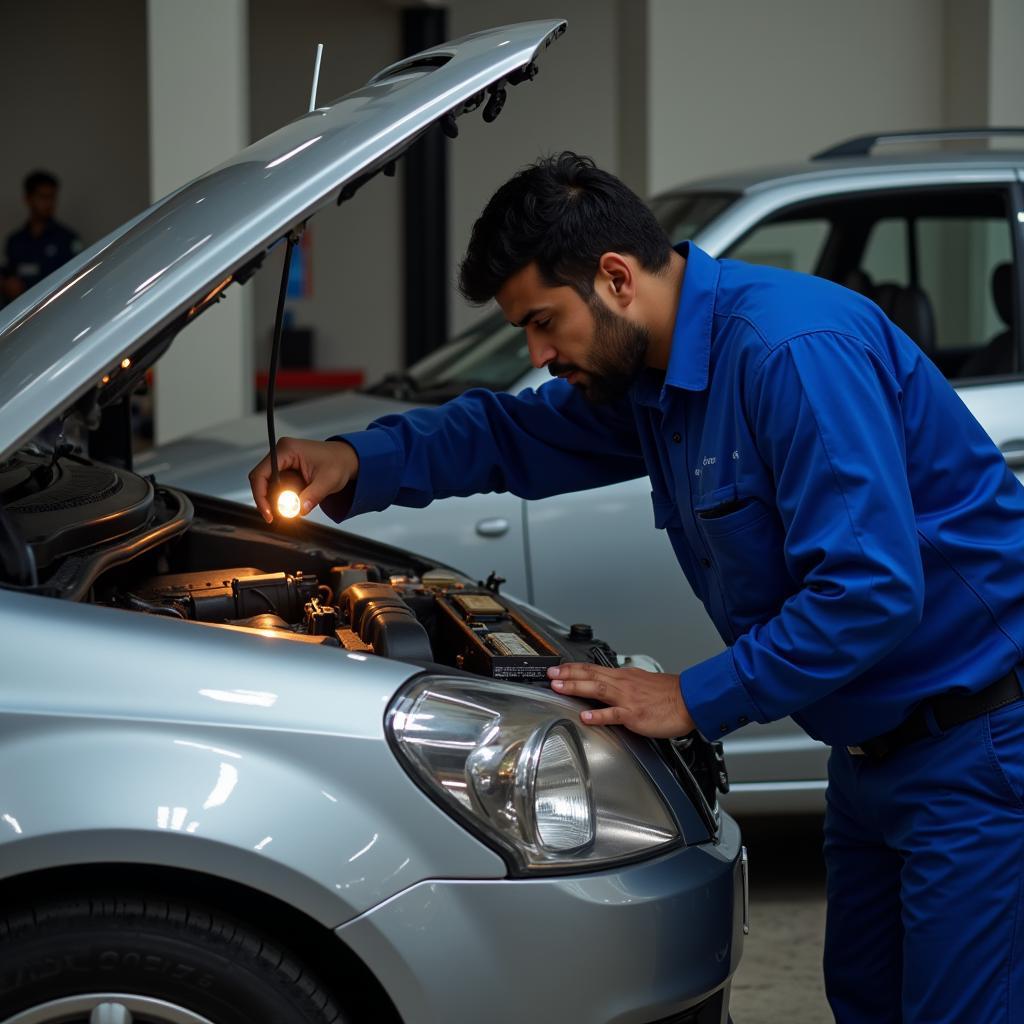What Happens If I Don’t Get My Car Serviced?
We all know that regular car servicing is important, but what happens if you don’t get your car serviced? Is it really that big of a deal? The short answer is yes. Neglecting your car’s regular maintenance can lead to a whole host of problems, from decreased fuel efficiency and costly repairs to complete engine failure.
 Car breakdown on the road
Car breakdown on the road
The Hidden Costs of Skipping Car Service
Putting off car service might seem like a good way to save money in the short term, but in reality, it can cost you much more in the long run. Here’s why:
- Increased Wear and Tear: Without regular oil changes, fluid checks, and component inspections, your car’s parts will wear down faster. This can lead to more frequent and expensive repairs down the line.
- Reduced Fuel Efficiency: A poorly maintained engine has to work harder, consuming more fuel. Regular service ensures your engine is running efficiently, saving you money at the pump.
- Safety Risks: Worn brakes, tires, and suspension components can significantly compromise your safety and the safety of your passengers.
- Voided Warranty: Many manufacturers require proof of regular servicing to keep your warranty valid. Skipping service appointments could void your warranty and leave you responsible for hefty repair bills.
 Mechanic inspecting car engine during service
Mechanic inspecting car engine during service
Common Problems Caused by Lack of Service
Wondering what can actually go wrong if you skip car service? Here are some common (and potentially dangerous) issues:
- Engine Failure: Lack of oil changes leads to increased friction and heat, eventually causing catastrophic engine damage.
- Transmission Problems: Without regular fluid changes and inspections, your transmission can overheat, slip gears, or fail completely.
- Brake Failure: Worn brake pads and rotors reduce your stopping power, putting you at risk of an accident.
- Tire Blowouts: Ignoring tire rotations and pressure checks can lead to uneven wear and tear, increasing the risk of a blowout.
- Suspension Issues: Worn shocks and struts affect your car’s handling and ride comfort, making it harder to control, especially in emergency situations.
How Often Should You Get Your Car Serviced?
The recommended service intervals vary depending on your car’s make, model, and your driving habits. Always refer to your owner’s manual for specific guidelines. However, a good rule of thumb is to have your car serviced:
- Every 3,000 – 5,000 miles for an oil change and basic inspection.
- Every 15,000 – 30,000 miles for a more comprehensive service, including fluid top-ups, filter replacements, and brake inspections.
- Annually for a thorough inspection of all major components.
Investing in Peace of Mind
Regular car service is an investment in your car’s longevity, your safety, and your wallet. By sticking to a regular service schedule, you can:
- Identify potential problems early on before they become major (and expensive) repairs.
- Prolong the life of your vehicle, saving you money on costly replacements in the future.
- Enjoy a smoother, more reliable ride.
- Have peace of mind knowing your car is in top condition.
Don’t wait for a warning light to flash or a breakdown to happen. Why You Should Get Your Car Serviced regularly and reap the many benefits of a well-maintained vehicle. For more information on car servicing and to find a trusted mechanic near you, explore CarServiceOnline’s comprehensive resources on what is done in a car service uk, what happens in a full car service, how to get car serviced before warranty is up, and what service does a car need at 100 000 miles.

